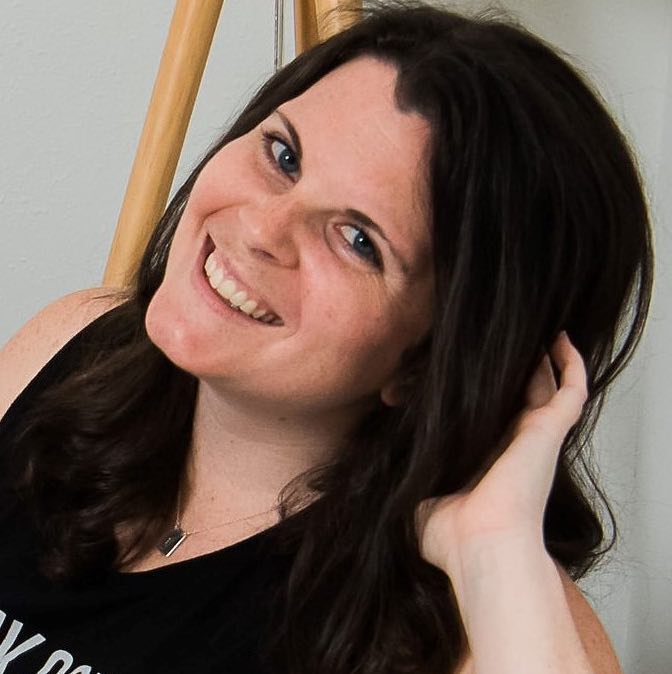7 minutes
To reduce your risk of burnout, replace these bad habits with better ones.
This blog is reprinted from the original.
Let’s be real here…
Burnout is a problem no matter your seniority!
But there’s a reason why I’m focusing on early career professionals in this post…
They haven’t had the time to figure out their routines yet. Most of the more senior people in corporate environments have. They’ve figured out what they need to do to take care of themselves. They’ve had the opportunity for that trial and error to figure things out, whereas people who are earlier in their career have not.
One of the biggest reasons young professionals struggle with burnout is they’re working to be “seen” within their company. More senior people—CEOs, managers or other more senior executives—have already done so. They don’t need to work themselves to death to show that they belong in the company and that they contribute. Young people often feel like they do need to prove themselves and assert themselves in the company when they first start.
So, that is the big reason I’m focusing on young professionals. It’s not that they’re the only ones that struggle, but they are still figuring out what they need to do to navigate burnout. So, let’s do this talk about bad habits that lead to burnout and what you can do about them.
Bad Habits That Lead to Burnout
Ultimately, I think the best thing we can do to avoid burnout early in our career is having positive habits that support us instead of bad habits that keep us chained to our laptops. So, let’s talk about what some of those bad habits might be.
Not Taking Your Lunch Break (or working through your lunch!). Both are bad habits to get into because, ultimately, you’re skipping crucial breaks. You need breaks in your day to be at your most productive. A lack of breaks leads to what’s called decision fatigue: the deterioration in your ability to make decisions after a long period of decision-making. A popular study demonstrated that judges were less likely to procrastinate and more likely to make sound decisions after a food break—meaning after lunch. Not just that, but taking breaks restores your motivation aboutwhat you’re doing, as described in a 2011 study. So, make sure you’re not skipping your breaks, particularly your lunch break.
- A better habit: To avoid temptation, I highly encourage getting up and changing locations during your lunch break. Not only will this help you avoid working through lunch, but the change in scenery will likely reinvigorate you. Better yet, go outside! Not only will this give you mental, emotional, creative and sensory rest, but it will also give you the benefits of fresh air and Vitamin D, both of which can rejuvenate and may even help you sleep better!
Answering Emails After Hours (or on the weekends). This relates to breaks. We need disconnection from work to properly recharge, rejuvenate and regain our passion, interest, and creativity in our field. Not taking a break leads to something that Thomas Kannampallil, Ph.D., describes as the “pile-up effect.” In an article published in Nature in March 2021, Kannampallil says that “greater job-related stressors affect one’s ability to dissociate from work.” This then affects our ability to sleep, exercise and otherwise take care of ourselves. It’s a vicious cycle—we get stressed and overwhelmed, which makes us less able to recover, which ramps up the stress and burnout we’re already experiencing. He says in the article, “You are emotionally exhausted yet disconnected, which creates an inability to recover and leads to a ‘pile-up effect.’”
- A better habit… End your day a little earlier and use that time tying up loose ends in your inbox. Why a little earlier? Because if you don’t plan for that time, you’ll likely just end up working late, which will add its own stressors and shame. If you plan to spend the last 30 to 60 minutes of your day tying up loose ends, you’ll be able to get out on time. The simple act of tying up loose ends for the day (or the week) will have the additional advantage of helping you to disconnect so that you don’t have something nagging out your mind when you’re “off the clock.”
- Another good habit… Set an out-of-office and proactively communicate your work hours to your supervisor, peers and clients. Not only do I set an out-of-office for my day job on the weekend (I’m off Friday and Saturday) but I also set up an out-of-office when I’m going to be out for my business. Additionally, I have something right below my email signature (shown below) that sets expectations for when people can expect to hear back from me! This is particularly important for my day job because a) we work Sunday - Thursday, b) our work hours are later in the day than typical jobs, typically starting around 12 p.m., and c) I work with people in a variety of time zones! So, it’s super important to set expectations ahead of time to avoid causing conflict…
Not Using Your Paid Time Off. Now, right out the gate, I’m going to address the people that don’t have PTO because, honestly, that was me up until recently. I am, in a lot of ways, a glorified contractor and I only get paid for the time that I’m working. Recently, I was able to change to a salaried position, which essentially means I’m able to take time off without taking a hit to my paycheck. So, I get it if you don’t have PTO. What I would say to you is this: Sktill make sure you’re taking time off! Are you going to have to tuck away money to do so? Absolutely! Perhaps leverage the months where you get more than two paychecks or leverage bonus season. If you do get PTO, friend, why aren’t you taking it? I had a friend in graduate school who didn’t use her PTO or sick leave because she wanted the payout when she left the job. But, let me just tell you, the payout was ridiculously small compared to what we both thought it would be and she regretted not taking the time off. Plus, as we’ve reiterated so much already, PTO represents BREAKS! Not only have you earned that time off, but taking time away is so necessary to productivity and good performance! So, not only should you be taking your weekends off—your company has a legal obligation to give you that time away—you should also be taking your time off.
- A better habit… Obviously, take the time off. Period. Use the tips above to help you log off at the end of the work week and before you go on vacation. In fact, just check out this blog post about the boundaries you need to set on your next vacation! Because it’s not just about taking the vacation; it’s about getting away. It’s about unplugging. It’s about disconnecting. If your company doesn’t have good systems in place for when people go on vacation, that’s their fault. Not yours. Don’t let them take over your vacation time. Otherwise, it’s not time off.
Taking On More Than You Can Handle. I get it—you want to stand out in your company, right? You’re young. You’re new. You’re ambitious. You want to make your mark and show your company and your boss how valuable and good you are at what you do, right? That’s often the motivation for overwork when we’re young in our industry and corporation. But we must think sustainably. A pedal-to-the-metal pace may sound impressive—and it is…until you can’t sustain it anymore. When you go out guns blazing, taking everything on and doing the thing, you’ll impress people, yes, but you’ll also set the expectation that that’s how you work. And at some point, the pace you’ve set isn’t going to be a pace you’re going to be able to maintain. So, what’s going to happen? You’re going to burn out in a firey blaze of glory—does that sound fun?!
- A better habit… Set appropriate expectations from the get-go! Ask yourself not only if this is something you can handle taking on, but also ask yourself if the timeline over which they’re wanting completion is feasible without burning yourself out. From my perspective, that’s often the problem! It’s not that you can’t do the work, but that you cannot do the work as quickly as you’re being asked. However, what we often do in that case is just work ourselves to do death to meet the deadline instead of communicating to our superior that we cannot meet that deadline out of fear that they’re going to think less of us. You’re already helping them out by taking that thing on. Don’t destroy your sanity in the process as well. Think about sustainable work levels always!
Ellyn Schinke is a former scientist and certified professional coach. After spending over a decade in academic and corporate environments, she's on a mission to help busy, burned-out corporate professionals free themselves from burnout and find their balance.






